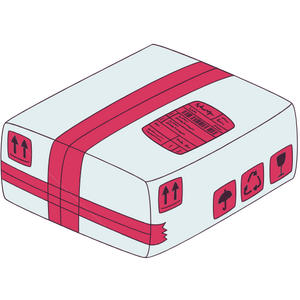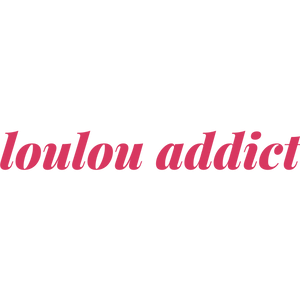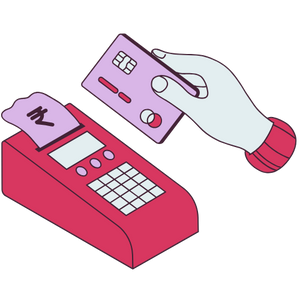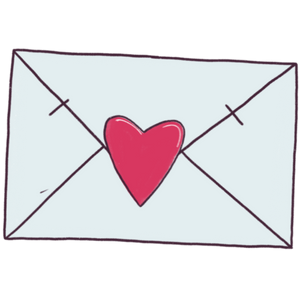Menstrual cycle, ovulation, periods—everything you need to explain it all to your teen!
We’ve already talked about it at Louloucup: first periods are a huge milestone in a young girl’s life. Most often happening in middle school, or even elementary school for early bloomers, the preteen or teen sees her body changing and evolving. She also has to learn how to manage her periods. This can be a source of stress or anxiety.
But there’s really no need to stress: First period? No worries, everything will be fine!
Acne, stomach aches, side effects, period products, menstrual cycle, menstrual flow, leaks, stains, odors, bleeding—so many questions can be on a teenager’s mind.
Does your teen have questions? Louloucup has the answers!
In this article:
The basics of feminine hygiene
We’ve picked six questions about women’s health that we think are essential for getting to know yourself, your body, your anatomy, and how it all works. This can be a great way to start the conversation. We tried to keep things simple and focus on the essentials. Because knowing yourself better already means being less afraid of the unknown.
What is a menstrual cycle?
The menstrual cycle is a recurring process that takes place in the female body, following the same pattern each time. This phenomenon is regulated by hormones: follicle-stimulating hormone (FSH) and luteinizing hormone (LH). The cycle has several phases. When the last phase ends, the cycle starts over again. This happens automatically from puberty until menopause.
A menstrual cycle typically lasts an average of 28 days. Sometimes it's a bit shorter, sometimes a bit longer—it's not an exact science. The menstrual cycle can change and be disrupted by outside factors. Emotional shock, stress, a simple cold, or changes in weight can throw off the cycle, making it shorter or longer.
The menstrual cycle prepares the uterus for a possible fertilization of the egg. In other words, the female body is getting ready to nurture an embryo. If fertilization doesn’t happen, the cycle restarts with a new period.
Want to learn more about the menstrual cycle? Check out our comprehensive guide!
What are the different phases of a menstrual cycle?
There are four distinct phases in a menstrual cycle.
- Menstruation or periods refer to the phase of the cycle when blood loss and bleeding occur—undoubtedly the most visible part of the cycle. Periods mark the start of the menstrual cycle; in other words, the first day of your period is the first day of a new menstrual cycle. For different women, periods can last three, four, or even six or seven days. Depending on the person, periods can be light or heavy—this is called menstrual flow. Curious about your own menstrual flow and its intensity? Check out our dedicated article: How to Understand Your Menstrual Flow?
- The follicular phase follows your period and ends with ovulation. This is usually the part of the cycle when women feel especially energetic and in great shape.
- Ovulation happens in the middle of the menstrual cycle, around day 14 or 15. In other words, 15 days after the first day of your period. There can be some variation. A mature egg detaches and starts its journey through one of the two fallopian tubes. If the egg doesn’t meet a sperm cell along the way, it breaks down.
- The luteal phase. The final stage of the menstrual cycle, this phase takes place between ovulation and your next period. During these few days before a new cycle, you might experience certain PMS or premenstrual syndrome symptoms and side effects. The drop in hormones can make you irritable or extra sensitive. Cravings and low energy are also common, among other things. To learn more:
Finally, to learn more about the different phases of the menstrual cycle, feel free to check out our more in-depth articles:
Why do I get my period every month?
Periods are a natural and normal phenomenon that occur about every 28 days on average in a woman's life. Periods start during adolescence around age 11 and end at menopause, around age 50.
Having periods is a sign of good health. A woman who has her period is of childbearing age. When a woman becomes pregnant, she no longer gets her period for the entire duration of her pregnancy.
Period blood is actually your uterine lining being expelled from your body because no fertilized egg has implanted during the cycle.
In other words, no fertilized egg has attached to the uterine wall, so no pregnancy develops. The endometrium that built up during the cycle to potentially welcome an embryo is no longer needed.
You can actually estimate the date of your next period pretty easily. Here’s everything you need to know: How to calculate your menstrual cycle?
Why does my stomach hurt when I have my period?
You might feel some discomfort a little before or during your period: lower belly pain, heaviness, breast tenderness. Your ovaries may be sore. You could also have back pain. If these are occasional and can be relieved with painkillers like Spafon or Doliprane, there’s no need to worry.
However, suffering during your period isn’t normal either. It’s important to tell your doctor, midwife, or gynecologist. Find all our tips for relieving period pain here: How to relieve painful periods?
What is ovulation?
Ovulation is the exact moment in the menstrual cycle when the egg has matured and detaches from the ovary. It then travels toward the uterus via the fallopian tubes.
Ovulation is made possible by a hormone, especially progesterone. This hormone is produced by the ovaries and is essential for the egg to properly implant in the uterus.
Physically, ovulation is a very subtle process that often goes unnoticed. Some women or teens may notice increased vaginal discharge. This is normal—it’s cervical mucus.
You might also feel a brief, mild pain in your left or right ovary. During ovulation, a woman is fertile, so the chances of getting pregnant are highest at this point in the cycle. Since sperm can survive for 2 to 5 days, the fertile window lasts several days around ovulation.
What period products can teens use?
Pads, disposable tampons, menstrual cups, or period underwear—don’t worry, your teen has plenty of options to manage their new periods with confidence!
Check out all our articles on period products and teens:
- Adolescence: my first period products, a big milestone!
- What’s the best period underwear for teens?
- Why are period panties the best choice for teens?
- Menstrual swimwear comparison for teens
- Which period swimsuit should I choose for my teen?
- Managing your first period with washable period underwear
If you want to do something good for both the planet and your wallet, reusable and washable period products are definitely a great alternative. Menstrual cups and period underwear are super practical for our teens. They can go about their day at school with peace of mind, without worrying about leaks, stains, or odors.
Check out the Louloucup teen period underwear collection now! A range of healthy, comfortable, soft, discreet, and reliable underwear for a stress-free, easy period. Plus, with Louloucup, shipping is always free in France and Europe, so don’t wait any longer!
 Don’t forget to pin this article 😉
Don’t forget to pin this article 😉































